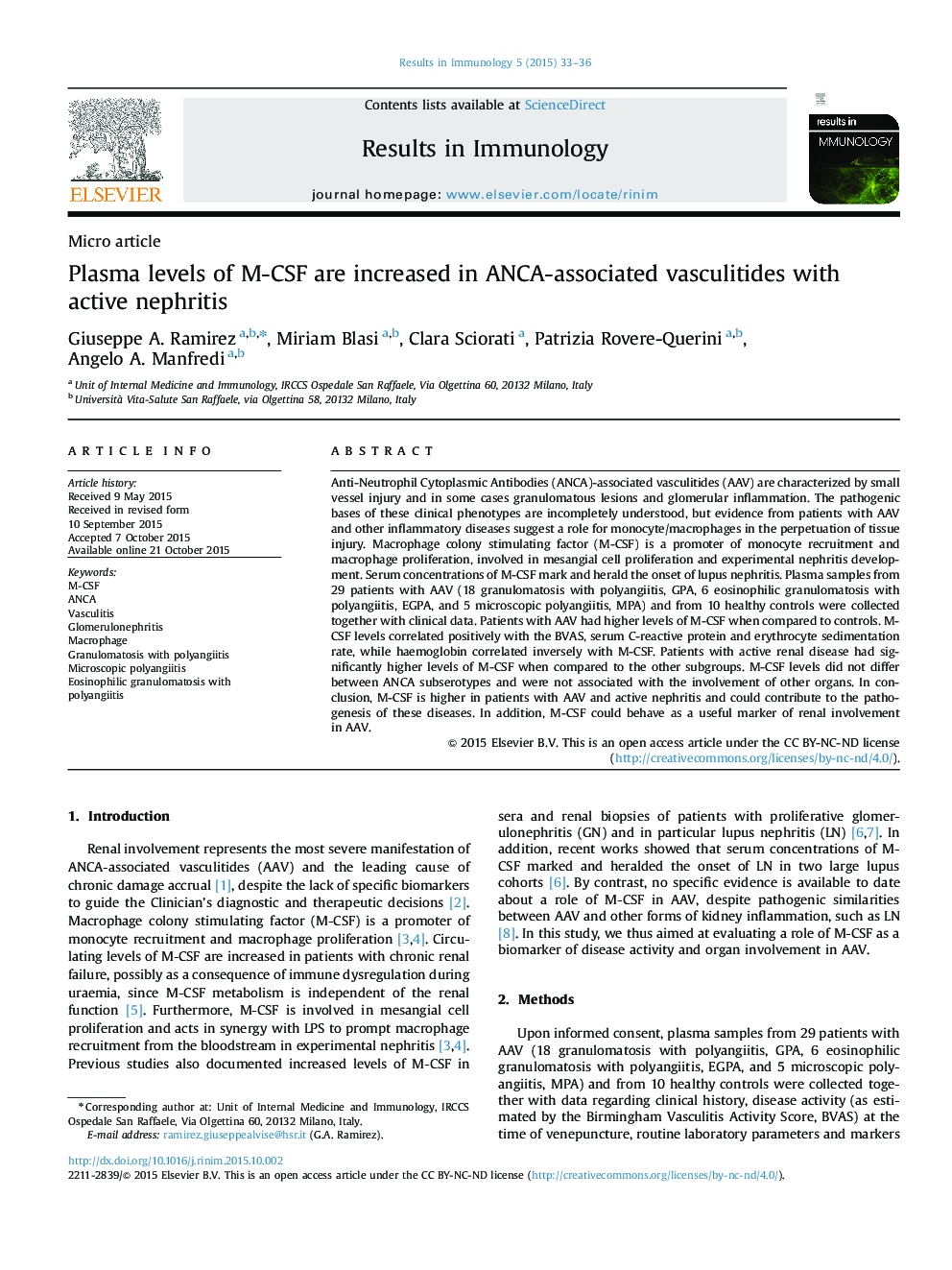| Article ID | Journal | Published Year | Pages | File Type |
|---|---|---|---|---|
| 2202385 | Results in Immunology | 2015 | 4 Pages |
Anti-Neutrophil Cytoplasmic Antibodies (ANCA)-associated vasculitides (AAV) are characterized by small vessel injury and in some cases granulomatous lesions and glomerular inflammation. The pathogenic bases of these clinical phenotypes are incompletely understood, but evidence from patients with AAV and other inflammatory diseases suggest a role for monocyte/macrophages in the perpetuation of tissue injury. Macrophage colony stimulating factor (M-CSF) is a promoter of monocyte recruitment and macrophage proliferation, involved in mesangial cell proliferation and experimental nephritis development. Serum concentrations of M-CSF mark and herald the onset of lupus nephritis. Plasma samples from 29 patients with AAV (18 granulomatosis with polyangiitis, GPA, 6 eosinophilic granulomatosis with polyangiitis, EGPA, and 5 microscopic polyangiitis, MPA) and from 10 healthy controls were collected together with clinical data. Patients with AAV had higher levels of M-CSF when compared to controls. M-CSF levels correlated positively with the BVAS, serum C-reactive protein and erythrocyte sedimentation rate, while haemoglobin correlated inversely with M-CSF. Patients with active renal disease had significantly higher levels of M-CSF when compared to the other subgroups. M-CSF levels did not differ between ANCA subserotypes and were not associated with the involvement of other organs. In conclusion, M-CSF is higher in patients with AAV and active nephritis and could contribute to the pathogenesis of these diseases. In addition, M-CSF could behave as a useful marker of renal involvement in AAV.
